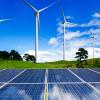
Earlier this week, the European Commission’s Group of Chief Scientific Advisors (GCSA) delivered a Scientific Opinion on a systemic approach to the energy transition in Europe in which they provide policy recommendations on how the commission can contribute, accelerate, and facilitate the clean energy transition at the European and global level.
One of the advisors’ key recommendations was that a sustainable and fair transition to a climate-neutral energy system requires not only innovative technologies, but also a people-centric approach that actively involves all participants in the energy environment.
“The European Union is leading the global fight against climate change by taking action to achieve net-zero greenhouse gas emissions by 2050. Transforming the energy system is a necessary effort to reach this goal. This Scientific Opinion recommends how to do it in an efficient, inclusive and fair way, reaping the benefits of innovative technologies such as digitalization and ensuring that no person or place is left behind,” said Mariya Gabriel, Commissioner for Innovation, Research, Culture, Education, and Youth.
“Achieving the full decarbonization of the EU energy system by mid-century is possible, but it requires urgent and decisive action to integrate emissions-free energy sources and uses in a flexible way. This will create a participatory environment that supports clean energy choices, and uses the right combination of regulatory instruments, which are necessary steps to make this transition efficient, inclusive, and fair,” added IIASA Emeritus Research Scholar and Deputy Chair of the Group of Chief Scientific Advisors, Nebojsa Nakicenovic, who was the lead advisor for the Opinion.
The fight against catastrophic climate change is arguably one of the most pressing challenges we are facing. In order for global warming to remain below 1.5°C, greenhouse gas emissions should reach their peak as soon as possible and the whole world should become climate neutral by 2050. Achieving this goal will require, among other things, a full transformation of the energy sector.
EU can lead global transformation
The Scientific Opinion contains recommendations on how the EU can lead this global transformation towards a climate-neutral energy system. In particular, the advisors recommend developing a flexible, efficient energy system by integrating renewable sources, electrification, and hydrogen, investing in the integration of infrastructures, and supporting research and innovation. Coal-based energy production should be phased out and replaced with renewable energy sources; road transport and industry should switch from fossil fuel to electricity as much as possible; and the energy efficiency of buildings, especially for heating and cooling, should be significantly improved.
They also stress the importance of creating an inclusive and participatory environment that supports low-carbon energy choices, incentivizing energy efficiency and reduction of energy use while assuring sufficient services for all. Finally, they recommend that a coordinated combination of policies and measures, including carbon pricing, should be used to shape an effective, consistent, and just regulatory system, with a clear direction towards the common goals of climate neutrality and sustainability.
The Opinion is informed by an Evidence Review Report produced by the Scientific Advice for Policy by European Academies (SAPEA) consortium of academies, which forms part of the commission’s Scientific Advice Mechanism. The recommendations will contribute to inform commission policies in the framework of the European Green Deal, an action plan to reach net-zero greenhouse gas emissions in Europe by 2050 and to make European economies sustainable, such as the forthcoming ‘Fit for 55’ package, which aims to reduce greenhouse gas emissions by at least 55% by 2030.
Adapted from an article first published on the website of the European Commission. Read the original article here.
News

28 June 2024
Drowning in waste: pollution hotspots in aquatic environments

27 June 2024
What can social media tell us about public views on climate change?

21 June 2024
